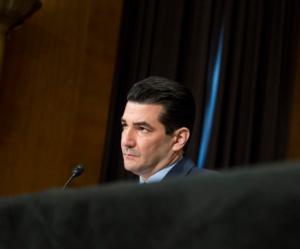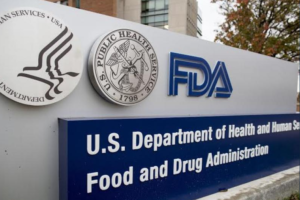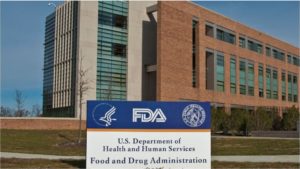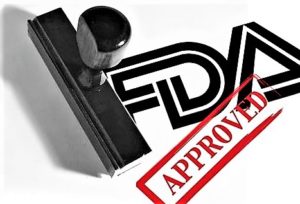- First Gene-Transfer Therapy Approved for U.S. Market (ashp.org)Pioneering cancer drug, just approved, to cost $475,000 — and analysts say it’s a bargain (statnews.com)
FDA...announced the approval of tisagenlecleucel, a first-in-class chimeric antigen receptor (CAR) T-cell immunotherapy consisting of genetically modified autologous T cells, for the treatment of B-cell precursor acute lymphoblastic leukemia (ALL) in children and young adults...After modification in the laboratory and infusion back into the patient, the CAR T cells target and eliminate both normal and malignant CD19-expressing B cells. The genetic modification enhances the initiation of T-cell activation and the persistence of the transformed T cells...Novartis will market tisagenlecleucel as Kymriah. Labeling for the product states that it is indicated in patients up to age 25 years with ALL that is refractory or in second or later relapse...Tisagenlecleucel has an FDA-required risk evaluation and mitigation strategy (REMS) program that includes elements to assure safe use. The labeling states that the immunotherapy is available "only through a restricted program."...
- Libertarian billionaire Peter Thiel funds “unethical” offshore human test of herpes vaccine, skirting FDA rules (salon.com)St. Kitts Launches Probe Of Herpes Vaccine Tests On U.S. Patients (khn.org)
Defying U.S. safety protections for human trials, an American university and a group of wealthy libertarians...are backing the offshore testing of an experimental herpes vaccine...Peter Thiel, invested $7 million in the ongoing vaccine research...Southern Illinois University also trumpeted the research and the study’s lead researcher...Neither the Food and Drug Administration nor a safety panel known as an institutional review board..monitored the testing of a vaccine its creators say prevents herpes outbreaks. Most of the 20 participants were Americans with herpes who were flown to the island several times to be vaccinated, according to Rational Vaccines...“What they’re doing is patently unethical,” said Jonathan Zenilman, chief of Johns Hopkins Bayview Medical Center’s Infectious Diseases Division. “There’s a reason why researchers rely on these protections. People can die.”...The risks are real. Experimental trials with live viruses could lead to infection if not handled properly or produce side effects in those already infected...
- How do you get lower cost drugs? Give the FDA a bigger stick (thehill.com)
Regulation can be a tool to strengthen competition and address important health and safety concerns, but it can also be abused to limit access to the market...lawmakers and regulators must regulate wisely and be careful of unintended consequences...what happens when important safety regulations can be gamed by bad actors seeking to preserve their monopoly profits?...This has been happening in the market for generic drugs, where some dominant brand name pharmaceutical companies are trying to shut out low cost generic competitors by manipulating the regulations originally designed to keep people safe. And this is not a small problem, either…The problem comes from a conflict that arises between...Risk Evaluation and Mitigation Strategy, and the approval process a generic company needs to go through to enter the market once a drug patent expires. Generics must get a sample of the brand name drug they want to compete with to prove to the FDA that their product is exactly the same...the REMS program greatly restricts access of certain drugs unless proper safety protocols, unique to each drug, are met. This can leave generic companies with no choice but to ask for samples directly from the manufacturer...It is not surprising that these drug makers are denying generics access to these samples. However, the FDA currently does not have the tools necessary to discipline these bad actors and force the distribution of samples to generic companies...Congress is now paying attention...
- Trump’s FDA Commissioner on Drug Prices, Regulations, Science (bloomberg.com)
Trump vs. Big Pharma: Can He Bring Drug Prices Down?...U.S. Food and Drug Administration Commissioner Scott Gottlieb spoke with Bloomberg News about drug pricing, new medicine and regulations. This transcript of the interview has been edited for clarity and length.
- What’s the FDA’s role to play in drug pricing and what can the agency do, given that it hasn’t traditionally had a mandate to address the issue?
- Is it just small, opportunistic drug companies that are "gaming" the system, or is this something bigger companies do as well?
- What about the rest of the administration? Trump talked a lot about drug pricing on the campaign trail and after, yet we haven’t seen much action other than yours.
- What about an executive order on drug pricing -- there was talk that Trump was going to come out with something. Is that still being worked on?
- What about drugs like EpiPen, would you come out with new rules there to create more competition? [EpiPen, made by Mylan NV, is what’s known as a drug-device combination, where both the medicine and the device that administers it can have patent protections.
- But is it reasonable to assume you’re looking at doing something like this, on these types of devices?
- One of the things we’ve seen from the administration is, get rid of regulation, get rid of regulation, get rid of regulation. How does your philosophy as a regulator –- one of the biggest regulators in the U.S. government –- how does that line up with what the Trump administration has called for?
- Some of the things you’re doing to create more competition among drugs, people could interpret as a loosening of standards. I wonder if you think that’s the case?
- Through the years we’ve seen the agency go through cycles, of pushing drugs out into the market faster, versus being much more conservative about safety. Is the balance at the FDA changing?
- How broadly can you apply new standards or guidelines for drug approval? There’s been talk about it in cancer, but what about other diseases?
- FDA steps up oversight of cell therapies (biopharmadive.com)
The Food and Drug Administration is stepping up its enforcement of the existing rules covering stem cell therapies in order to protect patients from unproven or potentially dangerous treatments...Under "a comprehensive policy framework" that will be put into place next quarter, individual providers and companies will be able to gain approval for products and procedures through a lower-cost and more streamlined process...A new working group will pursue unscrupulous clinics through legally enforceable means in order to protect public health...Patients desperately seeking solutions for potentially fatal diseases can get to a point that they will clutch at any solution offered...FDA Commissioner Scott Gottlieb's statement shows an awareness of the potential for "unscrupulous actors" in the field, and their impact both on vulnerable people and on the reputation of sound researchers and companies..."These dishonest actors exploit the sincere reports of the significant clinical potential of properly developed products as a way of deceiving patients and preying on the optimism of patients facing bad illnesses. This puts the entire field at risk. Products that are reliably and carefully developed will be harder to advance if bad actors are able to make hollow claims and market unsafe science. To make sure the agency is separating the promise from the unscrupulous hype, we are stepping up our enforcement activity in this area," said Gottlieb...
- FDA Details Plans for More Efficient Inspections, Facility Evaluations
The US Food and Drug Administration's Center for Drug Evaluation and Research and Office of Regulatory Affairs will soon launch an effort to streamline the two offices' inspection and facility evaluation efforts...CDER Director Janet Woodcock and Associate Commissioner for Regulatory Affairs Melinda Plaisier said it is vital that the two offices quickly implement the plan in order to meet commitments under the recently reauthorized user fee agreements, specifically citing the agency's promise to communicate final inspection classifications to generic drugmakers within 90 days of an inspection beginning in October 2018...We plan to operationalize the plan in the fall of 2017 for nearly all human drugs...FDA details the plan—which includes specific operating models for pre- and post-approval inspections, surveillance inspections and for-cause inspections—in a 20-page white paper obtained by Focus entitled Integration of FDA Facility Evaluation and Inspection Program for Human Drugs: A Concept of Operations...
- Senate reauthorizes FDA to collect fees from drugmakers (reuters.com)FDA Reauthorization Act heads to Trump’s desk after Senate passage (drugstorenews.com)
The Senate...passed a bill allowing the Food and Drug Administration to continue collecting fees from drug companies to review new product applications...The FDA Reauthorization Act renews an existing law that expires on Sept. 30 and which provides the majority of FDA funds used to review pharmaceuticals and determine whether they are safe and effective. The Senate passed the bill by a vote of 94-1...It was passed last month in the House of Representatives.
- Feds seize smallpox vaccine from clinic injecting it into cancer patients (theverge.com)
The US Food and Drug Administration has stopped a California company from continuing to inject the smallpox vaccine into the tumors of cancer patients...US marshals seized five vials of the smallpox vaccine from San Diego-based StemImmune Inc, which was using them as part of an unproven method for treating tumors...he vaccine is not commercially available and is only reserved for people who are at very high risk for developing smallpox, so it’s not clear how StemImmune got the vials to begin with. Luckily, the vaccine is not made from the actual smallpox virus and cannot give anyone the disease...It was...not meant to be used the way StemImmune was doing so, which was by mixing it with stem cells that come from body fat and injecting it into the tumors of patients at California Stem Cell Treatment Centers in Beverly Hills and Rancho Mirage...The FDA is encouraging consumers who have tried the treatment and had bad effects to use its MedWatch Adverse Event Reporting program.
- Flimsy evidence behind many FDA approvals (reuters.com)
Many drugs granted accelerated approval by the U.S. Food and Drug Administration lack clear evidence of safety and effectiveness, and the same is true for most high-risk medical devices, according to two new reports in the Journal of the American Medical Association...The Accelerated Approval pathway makes potentially promising investigational medicines available for use before the usual amount of data has been collected to confirm their effectiveness and safety…Drugs granted Accelerated Approval should be rigorously evaluated using convincing patient-centered clinical outcomes in rigorous studies...we have found numerous situations in which required confirmatory studies with rigorous designs and outcomes are not pursued or are not completed in a timely fashion, and in these cases, we are concerned that regulators appear to accept data that would not otherwise meet FDA standards...For standard approval, the FDA generally requires gold-standard randomized controlled trials that demonstrate a drug’s safety and effectiveness. Fourteen (out 22 analyzed) of these accelerated approvals, however, were exclusively based on less-rigorous trials.
- FDA panel: Not enough data to OK “abuse-deterrent” opioid (kolotv.com)
Food and Drug Administration advisers voted against approving a new opioid painkiller with a unique feature for deterring abuse: It releases a deep-blue dye if someone tries to get high by crushing, chewing or snorting pills...Panelists voted overwhelmingly against approving Intellipharmaceutics International's generic version of extended-release Oxycontin, a key drug in the U.S. opioid addiction epidemic. The FDA usually follows its advisers' advice...Doctors and scientists raised many concerns about the dye's safety for intended patients, and its effectiveness in deterring opioid abusers. Most said the company hadn't done enough studies of the drug...Some suggested blue stains around the mouth or nose from trying to abuse the drug could become popular among addicts. Others said the dye's "Scarlet Letter" shaming approach was insensitive...also...the company hadn't provided enough data to show that addicts couldn't find a way to convert the pills' active ingredient, oxycodone, into a liquid that could be injected...Advisers noted that the company hadn't studied issues such as whether the nasal irritant in the pill would prevent abusers from trying to snort it after crushing and whether the blood dye would discourage abuse attempts.










